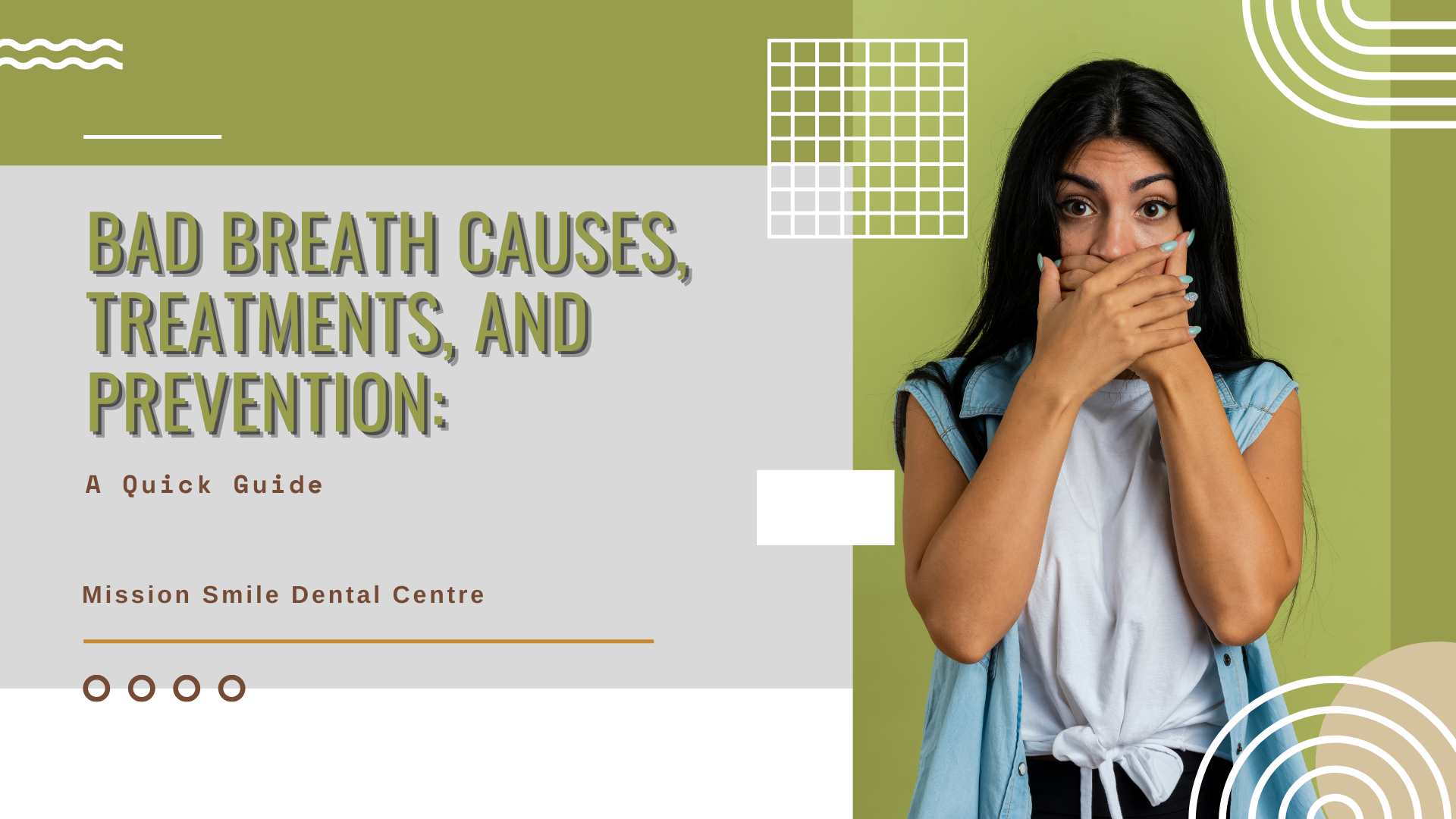
Medically known as halitosis, bad breath can result from poor dental health habits and can also be an indication of several other health issues. It can be made worse by other unhealthy lifestyle habits and the kinds of food you eat.
Do you want to know about it all? In this blog, you will find complete information on the causes, treatment, and prevention of bad breath.
When you don’t brush and floss daily, the food particles remain inside your mouth and promote bacterial growth on the tongue, around the gums, and in between teeth. This results in a foul Mouth Smell.
1. Gingivitis
2. Food particles and odor-causing bacteria
3. Tobacco-based products and smoking
1. Dry mouth or xerostomia
2. Liver or kidney issues
3. Chronic lung function
4. Gastrointestinal problems
5. Chronic acid reflux
6. Diabetes
7. Postnasal drip
8. Long-term sinus infections
9. Respiratory tract infections
10. Seasonal allergies
Say NO to food that sours your breath. Avoid having too much garlic and onions.
Scrape your tongue with the help of a tongue scraper. This tool is mainly designed to apply even pressure across the tongue area’s surface and does a great job of clearing any buildup.
After having food, rinse your mouth. It offers extra protection against bacteria. If not a mouthwash, then at least use plain water. This can help to loosen up and free trapped bits of food particles that get stuck inside your teeth after eating.
To remove plaque and food debris, brush twice a day with fluoride toothpaste. Change your toothbrush every 2 to 3 months.
Try and use an antiseptic mouthwash to keep your gums healthy. It can help get rid of bacteria that cause plaque and bad breath, ultimately leading to gingivitis, an early, mild form of gum disease.
If you are using any kind of dental device, be it braces or dentures, then make sure to keep them clean.
Eat fresh vegetables and fruits. Celery, carrots, apples, and other hard vegetables and fruits can help clear food particles and odor-causing plaque from your mouth.
Keep a check on the types of food you eat. In addition to this, know the effects of the medications you take (if you take any).
Even if you remain too busy, still, try to see your dentist at least twice a year.
Your dentist can help in finding the reason for your bad breath and treat it accordingly. For instance, if the odor is due to gum disease, your dentist can either treat it himself or herself or refer you to a periodontist. For the best results, always make sure to reach out to the most prestigious dental center!